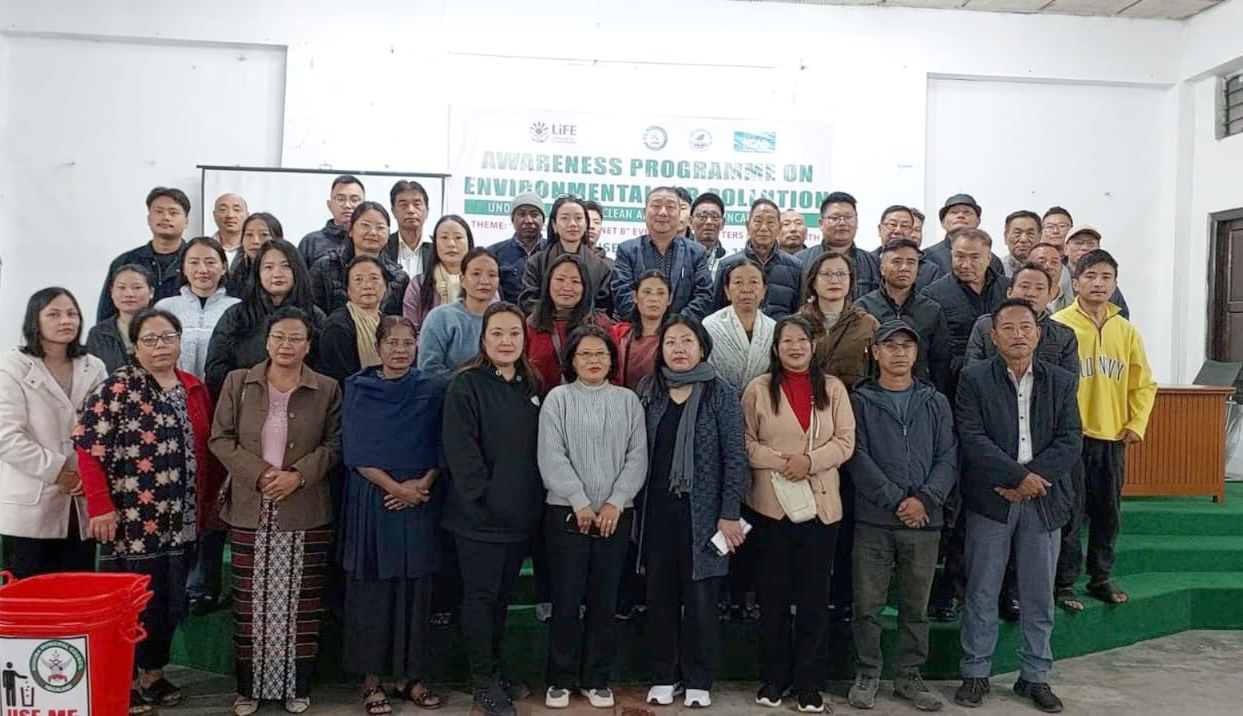The Kohima Municipal Council (KMC), in collaboration with Ward No. 17, organised an awareness programme on the National Clean Air Programme (NCAP) 2024–25 at Forest Community Hall under the theme “Act Now: No Planet B — Every Choice Matters for Our Earth.”
The first session featured Rongsenben Longkumer, Junior Scientific Assistant at the Nagaland Pollution Control Board (NPCB), who spoke on “Ambient Air Quality.” She explained that ambient air quality refers to the condition of the air in outdoor surroundings, which is essential for sustaining life and maintaining ecological balance. Longkumer noted that major air pollutants such as particulate matter (PM10 and PM2.5), sulphur dioxide (SO₂), nitrogen dioxide (NO₂), and carbon monoxide (CO) are routinely measured to assess pollution levels.
Highlighting the health consequences of poor air quality, she said that air pollution can trigger respiratory and cardiovascular diseases, reduce lung function, and contribute to premature deaths. She also cited vehicular emissions, industrial activity, construction dust, and open burning of waste as key sources of air pollution in urban areas.
Longkumer encouraged citizens to play their part in improving air quality by adopting simple actions such as reducing vehicle use, avoiding open burning, planting trees, and maintaining cleaner neighbourhoods. She added that achieving cleaner air is not solely the responsibility of the government but requires collective effort from every individual and community.
Download Nagaland Tribune app on Google Play

The second resource person, Y Hanpong Konyak, Junior Scientific Assistant at NPCB, spoke on “Lifestyle for Environment (LiFE),” an initiative introduced by Prime Minister Narendra Modi aimed at promoting sustainable lifestyles.
Konyak explained that Mission LiFE calls for mindful and eco-conscious choices in daily living, replacing wasteful habits with sustainable alternatives. He urged people to adopt environmentally responsible behaviours—using public transport, carpooling, conserving electricity and water, and properly segregating household waste.
He also encouraged the public to reduce single-use plastics, support local and eco-friendly products, and ensure efficient energy use both at home and in workplaces. “Every responsible action, no matter how small, contributes to protecting our planet,” Konyak stated, adding that collective effort can significantly reduce the burden on the environment.

